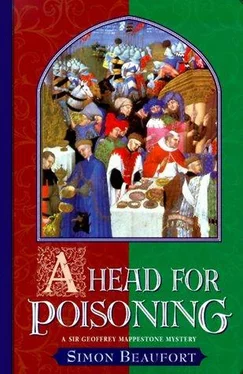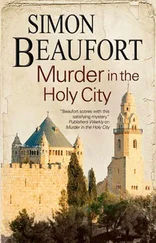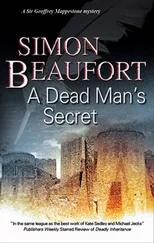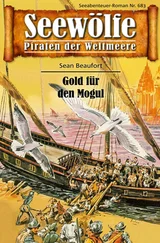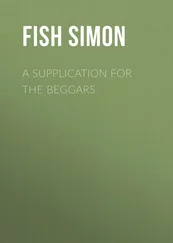Simon Beaufort - A Head for Poisoning
Здесь есть возможность читать онлайн «Simon Beaufort - A Head for Poisoning» весь текст электронной книги совершенно бесплатно (целиком полную версию без сокращений). В некоторых случаях можно слушать аудио, скачать через торрент в формате fb2 и присутствует краткое содержание. Год выпуска: 2015, Издательство: Severn House Publishers, Жанр: Исторический детектив, на английском языке. Описание произведения, (предисловие) а так же отзывы посетителей доступны на портале библиотеки ЛибКат.
- Название:A Head for Poisoning
- Автор:
- Издательство:Severn House Publishers
- Жанр:
- Год:2015
- ISBN:нет данных
- Рейтинг книги:4 / 5. Голосов: 1
-
Избранное:Добавить в избранное
- Отзывы:
-
Ваша оценка:
- 80
- 1
- 2
- 3
- 4
- 5
A Head for Poisoning: краткое содержание, описание и аннотация
Предлагаем к чтению аннотацию, описание, краткое содержание или предисловие (зависит от того, что написал сам автор книги «A Head for Poisoning»). Если вы не нашли необходимую информацию о книге — напишите в комментариях, мы постараемся отыскать её.
A Head for Poisoning — читать онлайн бесплатно полную книгу (весь текст) целиком
Ниже представлен текст книги, разбитый по страницам. Система сохранения места последней прочитанной страницы, позволяет с удобством читать онлайн бесплатно книгу «A Head for Poisoning», без необходимости каждый раз заново искать на чём Вы остановились. Поставьте закладку, и сможете в любой момент перейти на страницу, на которой закончили чтение.
Интервал:
Закладка:
“I want to visit Enide’s grave,” said Geoffrey. “I would have gone yesterday, but I stayed with you instead.”
“And you will come back afterwards?” whined Godric feebly. “You will not take the opportunity to go haring back to the Holy Land?”
It was a tempting thought. “No,” said Geoffrey. “I will come back later.”
“Very well, then,” said Godric, waving a papery hand. “You may go.”
Geoffrey buckled his sword round his waist and left, aware that Hedwise was behind him on the stairs. He did not want to resume their conversation of the night before, so he walked more quickly. So did she, and by the time they reached the hall, they entered it virtually at a run.
Walter was standing next to a roaring fire eating something from a bowl, while Stephen was feeding Geoffrey’s dog. The dog, seeing it could leave with Geoffrey or continue to be fed titbits from Stephen, opted for the latter, and Geoffrey left the castle alone. Hearing footsteps behind him, he turned in exasperation, expecting Hedwise to be following him. It was Julian, the stable-boy.
“Here,” the lad said, shoving a wrinkled apple and a remarkably fresh lump of bread into Geoffrey’s hands. “Someone is poisoning Sir Godric, and so you are right not to take breakfast in the castle. But these are safe enough-I baked the bread myself.”
“Baking is a curious talent for a stable-boy,” said Geoffrey, eating the bread. It was quite salty and rather heavy, but he had tasted a good deal worse in the Holy Land.
“That is because they force me to work in the kitchens,” said Julian bitterly. “I hate it there. I would rather be in the stables with the horses.”
“It might not always be like this,” said Geoffrey. “When you are older you might be transferred to work for the grooms if you show an aptitude for it.”
Julian sighed before speeding back towards the kitchens and Geoffrey watched him go. The more he saw Julian, the more he was convinced that there was something peculiar about him. But, Geoffrey reasoned, the entire castle was peculiar, so why should he be considering a single inmate?
He strode out of the barbican, through gates where the guards were nowhere to be seen, and made for the little wooden church of St. Giles at the far end of the village. People acknowledged him as he walked-some did so fearfully, some curiously, but most were resentful, and the more people he encountered, the more Geoffrey realised that the Mappestones were far from popular landlords, and that the villagers regarded him as an extension of a family who ruled by oppression and fear.
The village was not large, and comprised parallel rows of timber-framed and wattle-and-daub houses with the church at the far end. In Geoffrey’s youth, the houses had been pleasant-some had their outsides painted with washes of cream and white, others had their roofs thatched with well-tended golden straw. Twenty years on, the paint had faded to a uniform stained grey, and the thatches were shabby with weeds and nettles. The road that had been even and well drained was now rutted and thick with the human and animal waste that had been allowed to accumulate. The stench was over-whelming-even worse than in parts of Jerusalem. Geoffrey, not a squeamish man, found himself wondering what it would be like at the height of summer, when the sun would roast the fetid sludge and armies of flies would gather to feast on it.
One of the houses was better tended than the rest-its thatch was intact, and most of the black slime, which dripped down the fronts of the others, had been scrubbed away. As Geoffrey walked past it, Sergeant Helbye emerged.
“Will you help us today?” he asked, without preamble. “I came to the castle yesterday, but they would not let me in.”
Geoffrey gazed at him blankly, not certain what he wanted, until Helbye’s wife appeared in the doorway behind her husband.
“Your wife’s second marriage,” he said in sudden understanding. He had quite forgotten his sergeant’s predicament. “You would probably be better seeing the priest than me, Will.”
“Then will you come with us?” said Helbye nervously. “I want no misunderstandings over this. It is important.”
“Yes, it is important,” said Geoffrey kindly. “I am on my way to visit Enide’s grave. We can go to see the priest afterwards, if you like.”
Helbye gave a sigh of relief and nodded gratefully.
“I will show you Enide’s spot in the churchyard,” offered Helbye’s wife, ducking back inside her house for her cloak. “It is difficult to find, unless you know exactly where to look.”
“She is a good wife,” said Helbye in a low whisper, following her with his eyes. “I would not like to lose her and have to go through all the inconvenience of finding another.”
“I am sure you would not,” said Geoffrey.
Helbye had talked a great deal about his wife, but Geoffrey realised that he had never once mentioned her by name. It had always been “she.”
They walked the short distance to the church, and Geoffrey followed Helbye’s wife through the long wet grass to a mound in the corner of the graveyard under the gnarled arms of an oak tree. While Helbye and his wife tactfully busied themselves by pulling dandelion weeds from the dry-stone wall some distance away, Geoffrey stared down at the slight bump that represented his sister’s final resting place.
Geoffrey stood a long time at the foot of the grassy mound under the churchyard elm, thinking about Enide and her many letters to him. He tried again, unsuccessfully, to imagine what she might have looked like as a woman of thirty years of age. If he were honest with himself, even remembering what she had been like when he had left was difficult and, over the years, his perception of Enide had faded to a faceless figure with a plait of thick brown hair. The plait had stuck fast in his mind, because Enide had resisted the attempts of mother and sister to adopt any other style. What had initially been simple preference had soon become a matter of principle, and he knew from her letters that the plait had remained all her life.
Already weeds were beginning to creep across the grave. Geoffrey dropped onto one knee and picked at them absently, wondering what Enide would have liked him to do or say on such an occasion. A rustle in the grass made him turn, and he saw a young priest walking towards him, his black habit swirling around his legs and soaking up a good deal of early morning dew.
“Sir Geoffrey?” the priest asked, looking at the kneeling knight as he tucked his hands in his wide sleeves against the chill. “I am Father Adrian, Goodrich’s vicar. I have heard much about you from Joan and Enide. Welcome home.”
“Thank you,” said Geoffrey. “But I wish Enide were here to say that.”
“So do I,” said Adrian softly. “Finding her body was one of the worst moments of my life.”
“You were the one who found her body?” asked Geoffrey, climbing to his feet. Helbye and his wife came to stand nearby. “My brothers told me that she had just attended mass. What happened?”
Adrian sighed, and gazed up to where the bare branches of the trees patterned the sky. “She attended mass, and then left with the other parishioners. I stayed longer in the church than I would usually have done-there was to be a funeral that day, you see, for a woman who had died in childbirth. I lingered to say prayers for her soul, and when I came out, there was Enide, dead in the grass. Or her body, anyway.”
“What do you mean by ‘her body anyway”?” asked Geoffrey suspiciously.
“Not her head,” explained the priest. “It was missing, and we never found it.”
Geoffrey stared at the priest in horror before turning on Helbye. “What is this? No one mentioned a missing head before! You said you had told me all there was to know!”
Читать дальшеИнтервал:
Закладка:
Похожие книги на «A Head for Poisoning»
Представляем Вашему вниманию похожие книги на «A Head for Poisoning» списком для выбора. Мы отобрали схожую по названию и смыслу литературу в надежде предоставить читателям больше вариантов отыскать новые, интересные, ещё непрочитанные произведения.
Обсуждение, отзывы о книге «A Head for Poisoning» и просто собственные мнения читателей. Оставьте ваши комментарии, напишите, что Вы думаете о произведении, его смысле или главных героях. Укажите что конкретно понравилось, а что нет, и почему Вы так считаете.
